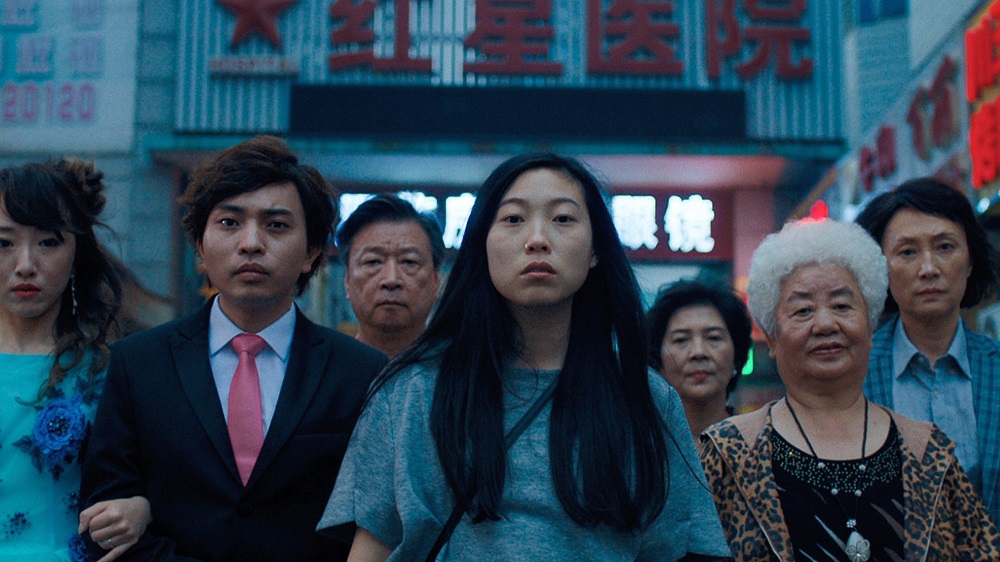
The Farewell
2019, PG, 98 min. Directed by Lulu Wang. Starring Awkwafina, Tzi Ma, Diana Lin, Shuzhen Zhao, Jiang Yongbo.
REVIEWED By Matthew Monagle, Fri., July 19, 2019
No nationality or culture or identity or continent is a monolith. Even as Asian American filmmakers fight for increased visibility in Hollywood, audiences are often reminded of the many ways this blanket term fails to capture the unique combination of family and cultural traditions. What makes Lulu Wang’s The Farewell one of the best movies of the year is the way she surfaces these differences; while the film might be about a Chinese American immigrant returning home, it’s as much about the way that one family can construct unique experiences across three different countries. There are complexities here that audiences will be unpacking for years to come.
After immigrating to New York with her parents as a child, Billi (Awkwafina) has maintained a close relationship with her Nai Nai (Shuzhen), even as her memories of her time in China have faded. This changes when Nai Nai is diagnosed with cancer – a fact the family decides to keep from her. Billi’s father (Tzi), mother (Lin), and uncle Haibin (Jiang), who now lives in Japan, reunite the full family for the first time in decades. Under the auspices of a cousin’s hastily planned wedding, they all fly back to China to spend one final week with Nai Nai, even as the Chinese American members of the family struggle with their perceived act of dishonesty.
Although The Farewell is, at its core, a film about cultural differences, Wang has no interest in turning Billi’s journey into just a fish-out-of-water story. There are only a few times when Billi’s Mandarin fails her – typically when her grandmother uses a colloquialism or a tricky piece of slang – and she navigates her childhood neighborhoods with a sense of ease. Wang wants to capture the tension between mismatched value systems, and Awkwafina finds her character’s unhappiness with her extended family in her posture. Billi carries the secret of Nai Nai’s illness as a physical burden, moving through the film with her head down and her shoulders hunched. Unlike other films that explore the anxiety of homecoming, The Farewell does not pretend like its prodigal daughter is the one with all the answers.
In fact, nothing in Wang’s film feels like manufactured tension. Perhaps owing to the family history she adapted, Wang’s characters have a life beyond the boundaries of the screen. This means the differences between Billi’s family members run far too deep to be solved onscreen. Uncles and cousins may snipe at each other about nationalities and their respective decisions to leave home – angry words are exchanged about the value of an American education or the pride of remaining a Chinese citizen – but Nai Nai’s fading health and the family’s rare time together keep them from saying anything that can’t be walked back. Sometimes, the movie argues, it’s the things we don’t say that prove how much we care. Billi’s path to acceptance of this makes The Farewell one of the most heartfelt homecoming films in years.
A note to readers: Bold and uncensored, The Austin Chronicle has been Austin’s independent news source for over 40 years, expressing the community’s political and environmental concerns and supporting its active cultural scene. Now more than ever, we need your support to continue supplying Austin with independent, free press. If real news is important to you, please consider making a donation of $5, $10 or whatever you can afford, to help keep our journalism on stands.
May 16, 2025
Dec. 20, 2024
The Farewell, Lulu Wang, Awkwafina, Tzi Ma, Diana Lin, Shuzhen Zhao, Jiang Yongbo









